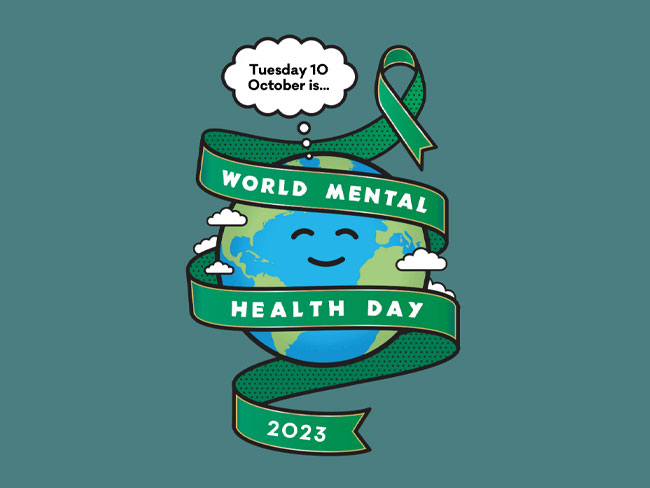World Mental Health Day
Date published: 10 Oct 2023
The message for this year's World Mental Health Day is, "Mental Health is a Human Right".
The World Mental Health Organisation (WHO) is encouraging people from all communities to unite to improve knowledge, raise awareness, and drive actions that promote and protect everyone's mental health as a human right.
Everyone has a right to good mental health. This includes the right to be protected from mental health risks, the right to available, accessible, acceptable, and good quality care. The right to independence and inclusion within all communities.
Good mental health is vital to our overall health and well-being. Unfortunately, the statistics show that 1 in 8 people, globally, are living with mental health conditions. A mental health condition can also impact a person's physical health, their well-being, how they connect with others, and their livelihoods. Mental health conditions are also affecting an increasing number of adolescents and young people.
Having a mental health condition should never be a reason to deprive an individual of their human rights or to exclude them from decisions about their own health.
Daily, all over the world, people with mental health conditions continue to experience a wide range of human rights violations. WHO continues to work with its partner to ensure mental health is valued, promoted, and protected. Their aim is to ensure urgent action is taken so that everyone can exercise their human right to access the quality mental health care they need.
How to help someone with a Mental Health Condition
1. Open the channels of communication
Tell them you're worried. It may be a good way to open the conversation. It also reinforces that you care about them and have time for them - and that they don't have to avoid you.
2. Provide reassurance
For anyone to open up about their mental health is a daunting thought. When they do, it is a very big step. It is important to recognise and reassure them. Let them know you're there to listen when they need to talk.
3. Don't change your behaviour
Carry on as usual. Do what you would normally do- behaving differently can make someone feel more isolated. Do not be afraid to offer kind words and a safe space to talk.
4. Offer your time to listen
Listening is an important skill. Ask open ended questions that start with "how", "what", "where", or "when". The Samaritans website has great "listening tips". https://www.samaritans.org
5. Do not force it
Do not force the communication or schedule a GP appointment without prior consent, it may further increase their stressors. Gently explore the reasons and listen without judgement, it may help them work out what they want to do.
6. Offer practical help
Little acts of kindness, like offering to do their shopping, or go to professional appointments with them.
7. Look after yourself
This is vital, to ensure you are the best version of yourself, in order to help other. It can be upsetting to hear someone you care about in distress. Be kind to yourself and take time to relax and do something you enjoy.
Useful weblinks
Anxiety UK - www.anxietyuk.org.uk
Bipolar UK - www.bipolaruk.org
CALM (Campaign Against Living Miserably) - www.thecalmzone.net
Mental Health Foundation - www.mentalhealth.org.uk
No Panic - www.nopanic.org.uk
Papyrus (Prevention of Young Suicide helpline) - www.papyrus-uk.org - 0800 068 4141. Phone lines open 9am until midnight every day of the year.
Samaritans - www.samaritains.org
Release the Pressure - www.releasethepressure.uk




